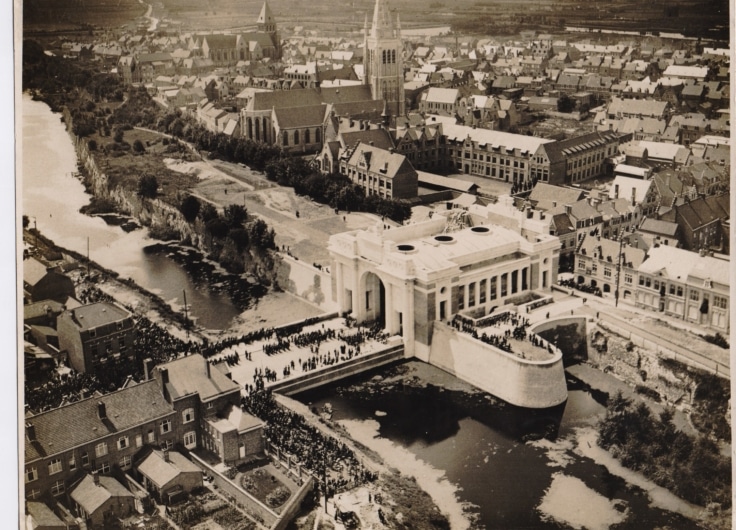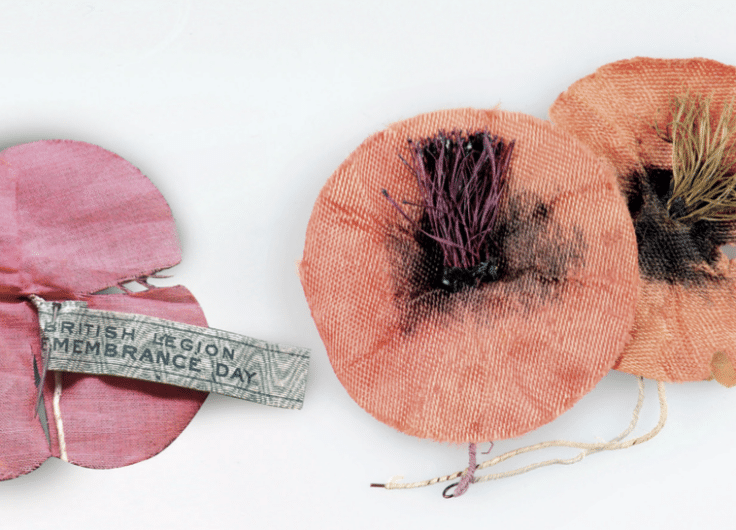Asians on the Western Front: The Forgotten Soldiers of World War I
About a quarter of a million Asians were present on and near the front in Belgium and Northern France during the First World War. What they saw, and how they experienced the war not only bolstered their self-esteem but also jeopardised the idea that western civilisation was the leading light to follow.
During the First World War hundreds of thousands of non-European men contributed to the allied war effort. It was the first time they came in large numbers to Europe and got directly acquainted with the ‘civilisation’ of their colonial masters. The use of the word civilisation is not random here for an important characteristic of 19th and 20th century imperialism was that the non-European ‘Other’ was considered inferior in contrast to one’s own superior culture, and a civilising mission was an integral part of every colonial project. Yet, the Europe they witnessed was involved in a devastating war, and that must have changed the way they saw the world, and in particular the role and position of the whites. But one could also wonder how it had changed themselves?
Indians and Chinese in Flanders Fields
For a forthcoming book I studied the two largest non-European groups in British service: the Indians and the Chinese. And we are talking about large numbers who traveled to Europe: 96,000 Chinese labourers, between 1917 and 1920 (with 38,000 more in French service) and an estimated 138,000 Indians, of which 90,000 as soldiers (infantry and cavalry) and 48,000 in the Indian Labor Corps.
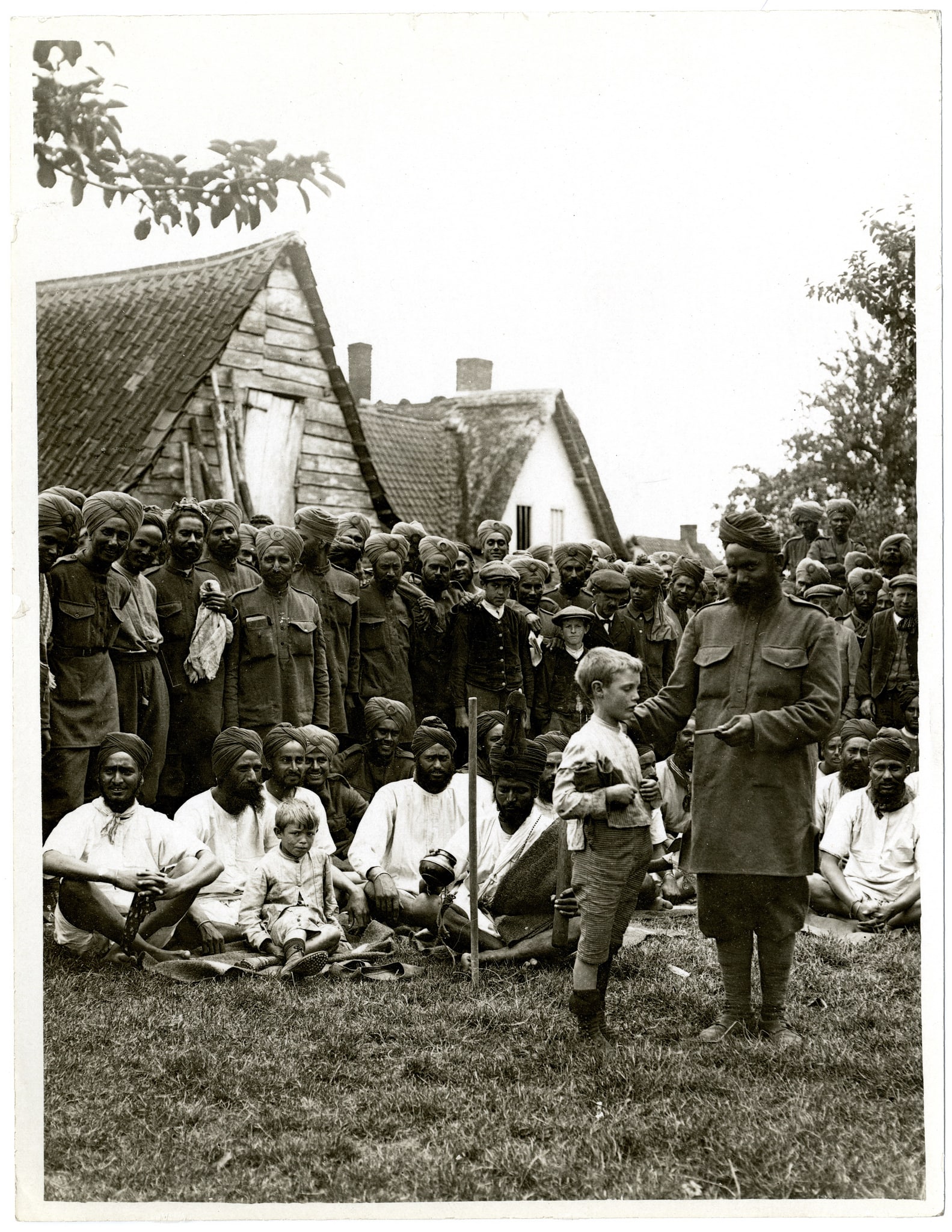 Sikhs of the Indian Army Corps with local children in Le Sart (Northern France), 1915
Sikhs of the Indian Army Corps with local children in Le Sart (Northern France), 1915© British Library – Girdwood Collection, London
From an analysis of the letters they wrote home, the handful of memoirs they left us, and a number of other disparate sources, it is clear that the way Indians and Chinese saw themselves, in other words how they identified themselves, was considerably changed through the war. Through their war experience the personal hierarchy of the social products (class, race, gender,… ) with which these individuals identified shifted. Subordinate ex-servicemen were often foremost that: veterans. But while the issue of skin colour before the war might not have been considered that important, it became so during the war: non-European veterans were made aware of the fact that this made them different (from the Europeans) and earned them a different treatment.
The road to (proto-)nationalism
The war was to a large extent a traumatic affair for Chinese and Indians on the Western Front and this from the very start of their engagement for crossing the seas was a social taboo for both Asian groups. Even more traumatic was the hard and sudden confrontation with a modern, total and industrialised war to these people who had perhaps only seldom, if ever, witnessed modern machinery, even less such destructive and lethal machinery. The result was a sense of being overwhelmed by the circumstances, of having no say in one’s own destiny, in other words: of alienation. This sense, not uncommon in many of the European rank and file, was intensified by the subordinate position of the Indians and Chinese, and by the consequently discriminatory treatment to which they were subjected to a greater or lesser extent. Finally, finding themselves in an entirely unfamiliar landscape, often utterly destroyed, and surrounded by a completely different culture with strange habits and where no one spoke their mother tongue can only have made the feeling of alienation total. At the same time, these circumstances of travelling overseas, of being confronted with difficult living conditions in a strange environment bound the group together and their ‘otherness’ made them stand out against the Europeans.
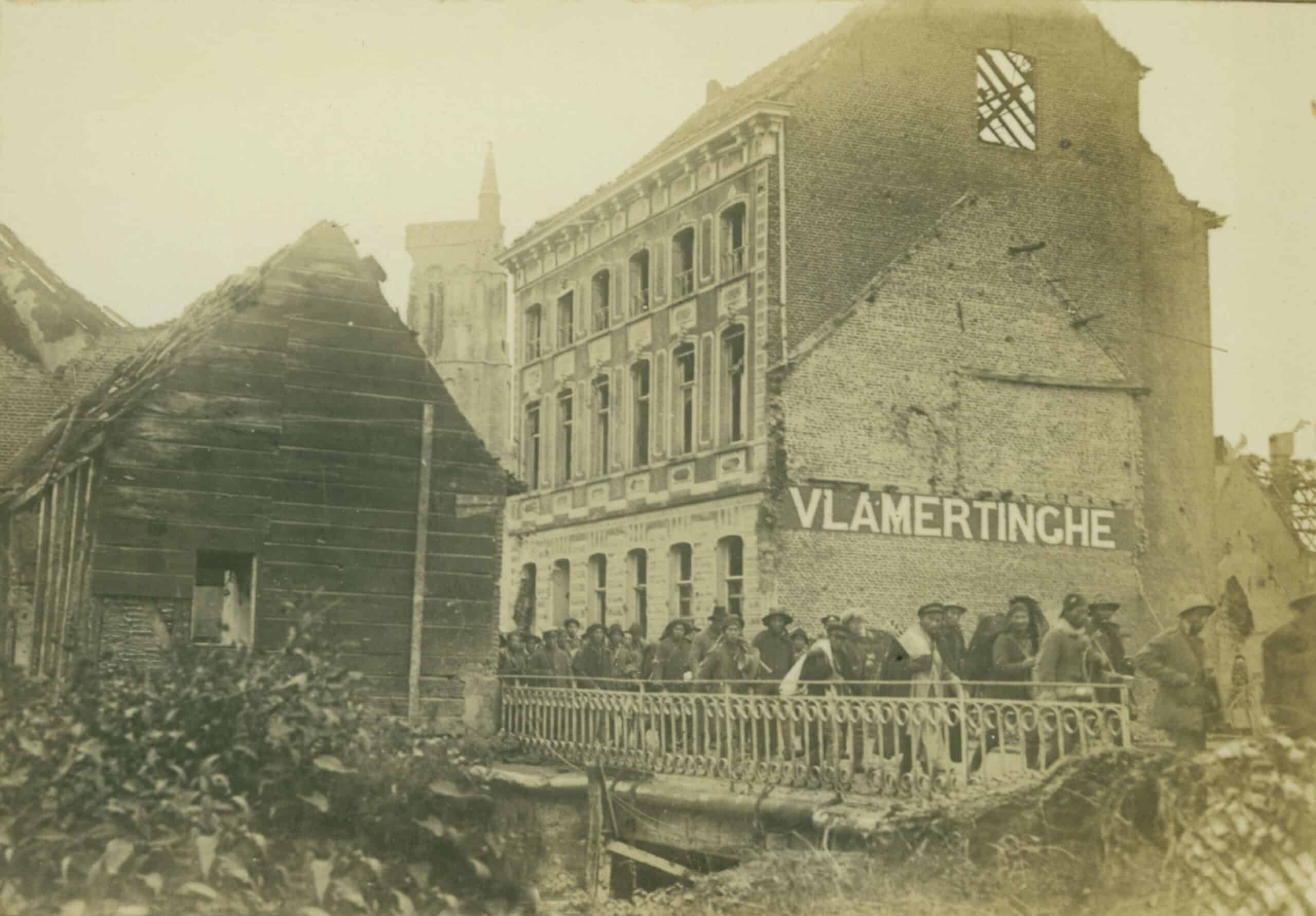 A company of the Chinese Labour Corps passing through Vlamertinghe, 1917-19
A company of the Chinese Labour Corps passing through Vlamertinghe, 1917-19© In Flanders Fields Museum, Ieper
Through the confrontation with the European ‘Other’, Chinese and Indians realised much more strongly what they had in common, highlighted more what they shared than what separated them, and we see a development of a certain groupness: across castes and religions with the Indian rank and file, between intellectuals and illiterate labourers in the Chinese Labour Corps. This enhanced groupness had the capacity to devolve in some kind of (proto-)nationalism. Members of the Chinese Labour Corps, even if initially they had joined just for the money, saw themselves more and more as representatives of the Chinese Republic while exalting the common value of Labour.
Within the Indian groups we see how this development of national feelings could go in different directions with both an identification with a certain idea of India, as well as the emergence of a more regional proto-nationalism as we see with the labourers recruited among the tribal communities of Mizoram and Nagaland. This somewhat prefigures the two opposite political trends that would appear when Indian independence became imminent: on the one hand a pan-Indian view that strove towards a single Indian nation-state, and on the other hand an ethnically or religiously inspired view that sought its national destiny independently.
 Indian soldiers
Indian soldiers© GF
Asian soldiers and labourers: from students to activists
Besides the development of forms of groupness, being in Europe and meeting Europeans had enhanced the self-consciousness of the Asian groups. Personal and common shortcomings were realised, and this led to a wish to learn from Europe. Yet, this was usually not manifested in an uncritical desire to emulate the West: besides shortcomings, personal and common strengths were also realised, as well as those aspects in which the western ‘Others’ and their society failed humanity in Asian eyes. A case in point is the disapproving attitude of many Indians and Chinese towards western values and religion. After he had observed flares lighting up the battlefield at night, Sun Gan made the following remark:
“Those Europeans are able to understand the logics of matter using the logics of the human spirit and thus are able to transform a pitch-dark battlefield in a clear morning sky. Suppose they would try to reach the logics of Heaven through the logics of matter, that would be real civilisation.”
This Chinese labourer expresses on the one end admiration for western technology and what it was capable of, yet on the other end abomination for that part of western culture that instrumentalised this technological lead for death and destruction.
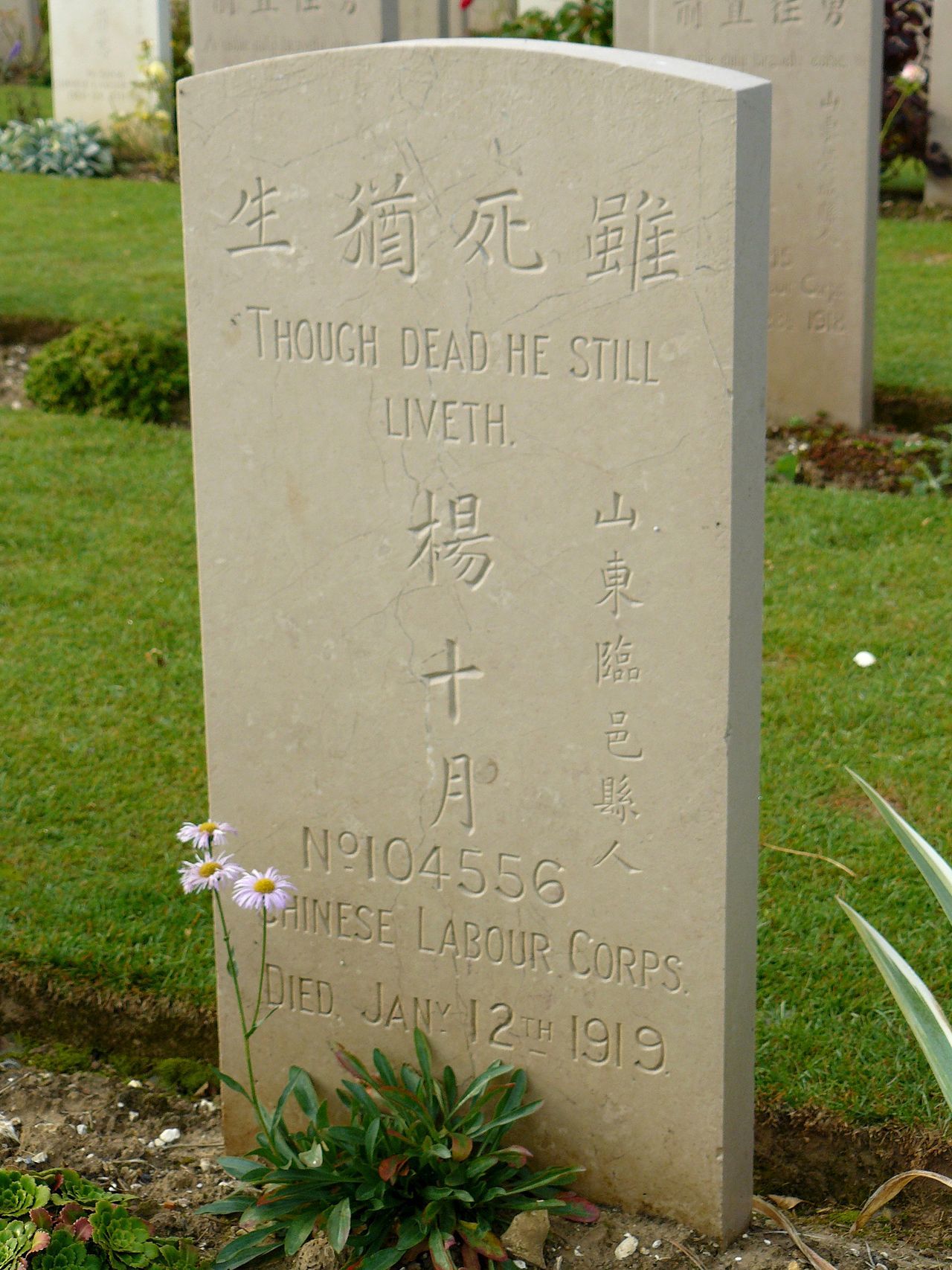 Grave of a Chinese labourer on the military cemetery in Noyelles-sur-Mer (Somme)
Grave of a Chinese labourer on the military cemetery in Noyelles-sur-Mer (Somme)© Wikimedia Commons
While the West did not set an example to follow in the field of spirituality, it certainly did so in other fields. A consequence of the augmented self-awareness on behalf of the Indians and the Chinese was the ambition of self-improvement through studying those aspects of western society that did seem useful, not only for one’s personal development, but also to one’s group and home society such as technology and education.
Finally, the boost in groupist feelings, and thus in standing together, through the war and the confrontation with the European ‘Other’ was a strong impetus for agency and empowerment. The Indian military and labourers and the members of the Chinese Labour Corps were not “passive receptacles of Western civilisation”. Even within the restricted framework of the western front they gave proof of alertness and agency as is demonstrated by the occurrence of strikes and other forms of protest. Of major significance was the contrast in the way they were treated by their British overlords and the usually more benign attitudes of the French authorities and the local inhabitants which not only invoked reflection on their imposed subordinate position, but also agitation for the improvement of their lot.
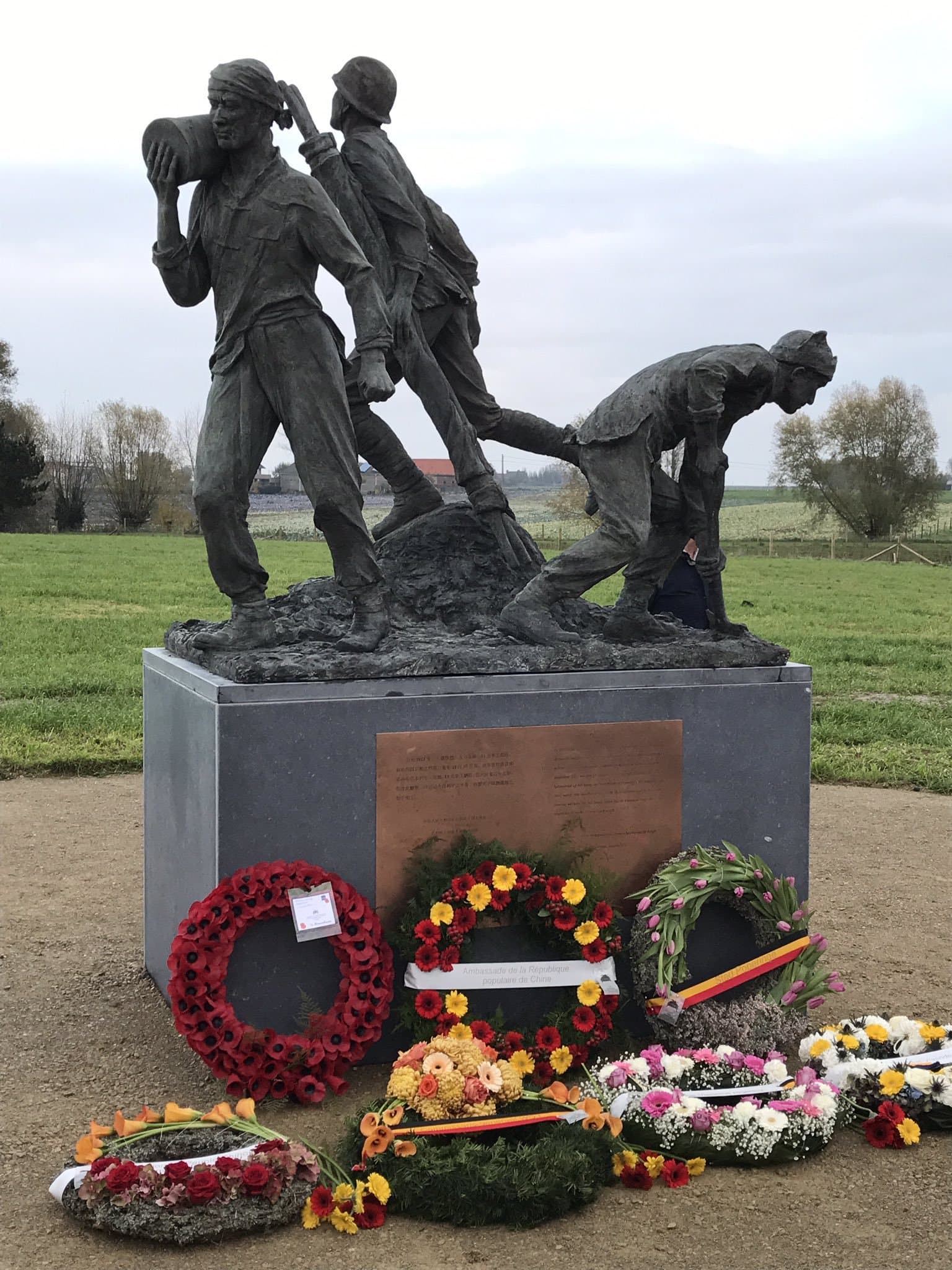 Bronze statue honoring Chinese labourers working for the Allied Forces during World War I, in Busseboom Village, Poperinge
Bronze statue honoring Chinese labourers working for the Allied Forces during World War I, in Busseboom Village, Poperinge© Twitter/Lea Winkeler
Messengers from West to East?
An important question is in how far the Asians who served on the Western Front were true messengers from West to East? In other words: in how far did they have a real impact in their home societies at large? This remains a difficult question to answer, especially in the political domain. Despite their large numbers, the groups that had served in Europe were probably relatively too small in comparison to the population of their home countries to make a direct impact, except in the case of the tribal communities that made up some of the companies of the Indian Labour Corps.
Ex-soldiers and labourers acted more as accelerators and catalysts of chance than initiators of wholly new conditions (seldom without forgetting their own interests). For in both the Indian and the Chinese case it can be argued that even if their direct impact on their home societies was quite limited, their indirect influence, certainly on a longer term, might have been considerable. We see, for instance, how in both China and India returning veterans inspired by the example they had seen in Europe, agitated for the dissemination and improvement of education. They opened schools, and in particular schools for girls.
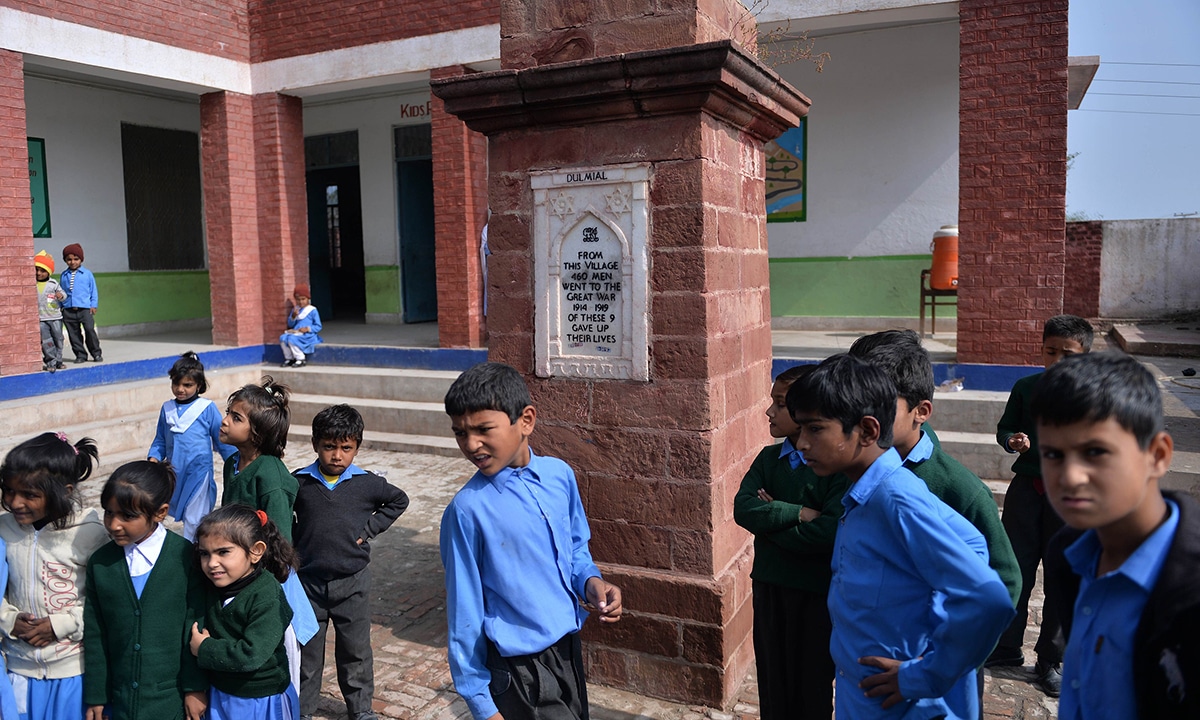 The school in Dulmial (Pakistan) was founded by war veterans and acts as the local war memorial.
The school in Dulmial (Pakistan) was founded by war veterans and acts as the local war memorial.© Irfan Malik
It is a legacy that is still with us: some schools in India and Pakistan still bear the plaques stating they were founded by First World War veterans, while the educational reforms instigated and propagated by Yan Yangchu (James Yen) and inspired by his service during that war is generally recognised as being of an importance that far surpasses China’s borders. This investment in educational projects on behalf of ex-servicemen is also politically highly significant.
Asian war veterans and the road to decolonisation
Though a direct link between war experience and political activism cannot always be drawn, there are clear indications that having served on the Western Front did enhance one’s level of self-confidence and political, national, ethnical or racial awareness. In India, some returned veterans joined the nationalist struggle while others on the contrary became pillars of the colonial order. In China, while there might have been a direct influence on some members of the first generation of communist leaders residing in France, the Chinese Labour Corps certainly did play an important role in the sacralisation of Labour that was so dear to the May 4th Movement. This was the nationalist movement that officially emerged on May 4, 1919 after the news had broken that China would not get what it wanted on the Paris Peace Conference, ultimately leading to the refusal of the Chinese delegates to sign the Treaty of Versailles. And the importance of the May 4th Movement for the history of Modern China can hardly been underestimated.
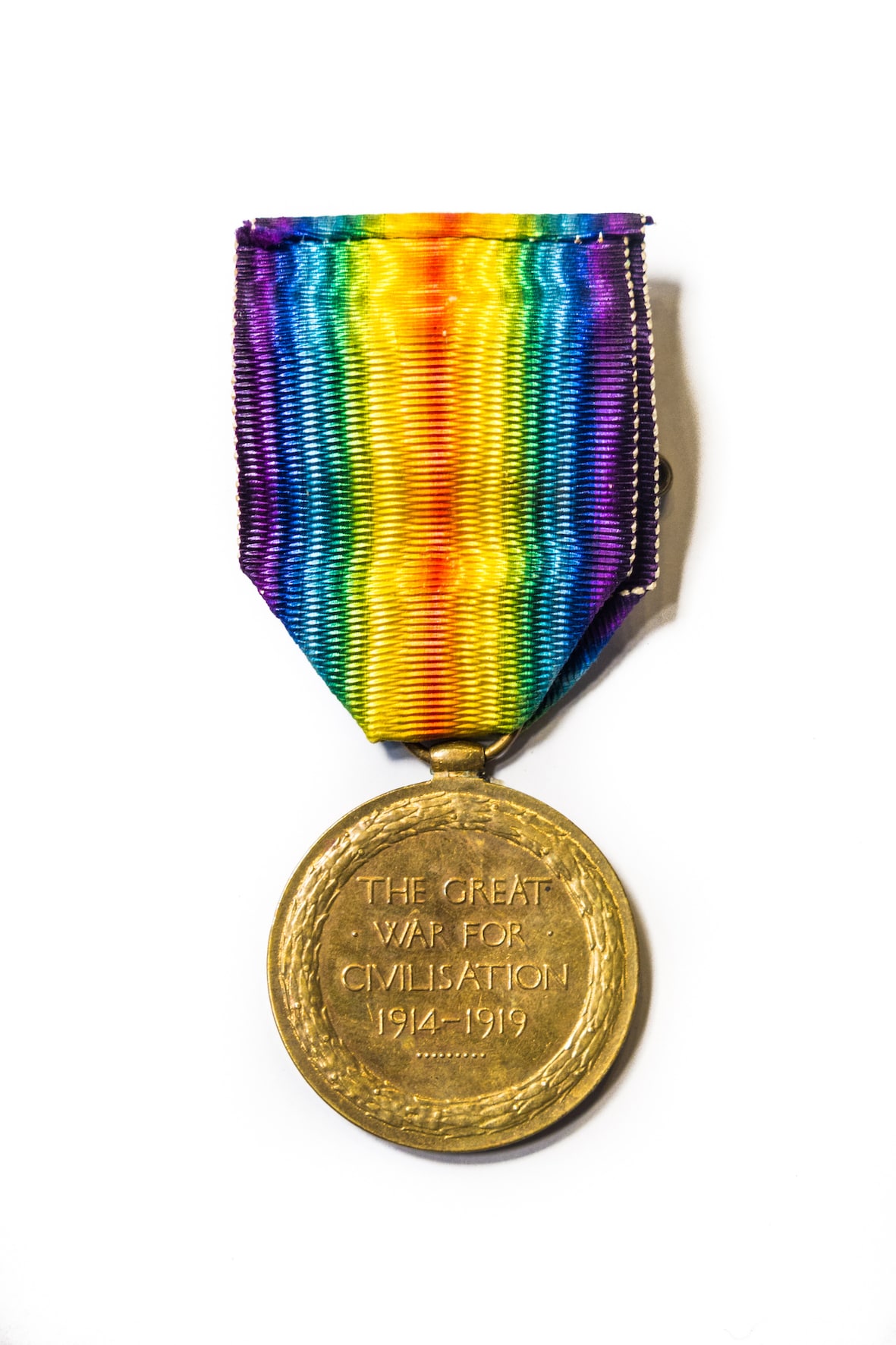 The interallied Victory Medal, British version
The interallied Victory Medal, British version© In Flanders Fields Museum, Ieper
But most important of all: in both India and China, as elsewhere in the non-European world, the returning veterans were instrumental in jeopardising the idea that the West was the leading light for intellectuals, and in transforming the way the ‘white’ man was looked upon. All Indian and Chinese veterans, regardless of whether they had been soldiers or labourers, had been awarded the Inter-allied Victory Medal. It proudly proclaimed they had served in “The Great War for Civilisation’. However, nobody had, better experienced the distortion between the theory of fighting for the high-minded ideals of freedom and justice and the raw reality.
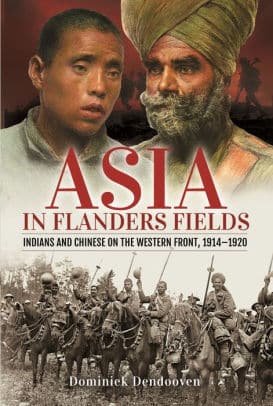
This put a heavy mortgage on the middle- and long-term on the survival of the British Empire, as well as other empires. For the war experiences of Asian subordinates did play a role in the worldwide contestation of the hegemony of white rule that would emerge after the First World War and which would ultimately lead to decolonisation, though it would take a Second World War to complete the process.
Dominiek Dendooven, Asia in Flanders Fields. Indians and Chinese on the Western Front, 1914-1920, Pen & Sword Books, Barnsley, 2021, 256 pp.


